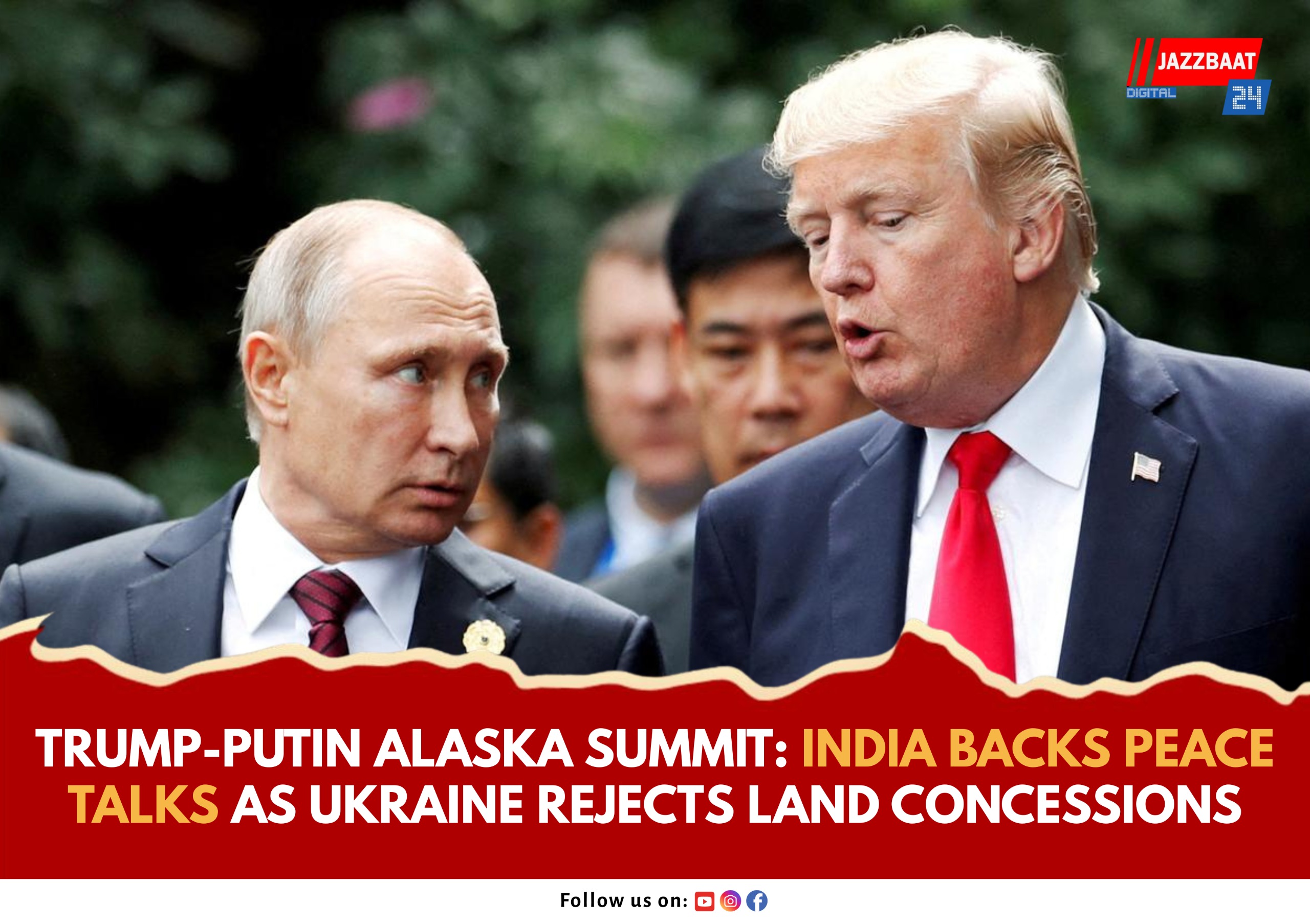
President Donald Trump's announcement of a planned meeting with Russian President Vladimir Putin in Alaska on August 15 has drawn international attention as the world watches for potential breakthroughs in ending the Ukraine conflict. The summit, aimed at brokering peace between Russia and Ukraine, has received backing from India while facing strong resistance from Ukrainian President Volodymyr Zelensky.
India has officially welcomed the upcoming Trump-Putin talks, with the Ministry of External Affairs expressing support for what it describes as a promising step toward ending the ongoing conflict. Foreign Ministry spokesperson Randhir Jaiswal stated that India endorses the summit and stands ready to support these peace efforts.
"This meeting holds the promise of bringing to an end the ongoing conflict in Ukraine and opening up the prospects for peace," the MEA statement read, referencing Prime Minister Narendra Modi's previous remarks that "this is not an era of war."
India's position reflects its consistent diplomatic stance of supporting peaceful resolution through dialogue, despite facing pressure from the United States over its continued energy imports from Russia. The potential peace deal could benefit India by potentially negating secondary sanctions threats related to its Russian trade relationships.
According to reports, Putin has presented the Trump administration with a comprehensive cease-fire proposal that includes significant territorial concessions from Ukraine. The Russian leader reportedly demands recognition of Russian claims over eastern Ukrainian territories in exchange for halting military operations.
Trump has indicated that any agreement would likely involve "swapping of territories to the betterment of both" sides, suggesting a willingness to consider territorial exchanges as part of a broader peace framework. The meeting comes after Trump's special envoy Steve Witkoff held three hours of talks with Putin in Moscow, which US officials described as "highly productive."
Ukrainian President Zelensky has categorically rejected any proposal involving territorial concessions to Russia. Speaking defiantly on Saturday, he declared that Ukraine would not surrender any land to occupying forces.
"Ukrainians will not give their land to the occupier. Any decisions against us, any decisions without Ukraine, are also decisions against peace," Zelensky emphasized. He warned that such arrangements would achieve nothing and stressed that the war "cannot be ended without us, without Ukraine."
The Ukrainian constitution explicitly prohibits territorial concessions, and Zelensky has made clear that no deviation from this principle is acceptable. This stance presents a significant obstacle to any peace agreement based on territorial exchanges.
The White House is reportedly considering inviting Zelensky to Alaska for the summit, though his participation remains uncertain. This potential three-way meeting could provide a more comprehensive platform for negotiations, though Ukraine's rigid position on territorial integrity suggests challenging discussions ahead.
The Alaska summit represents Putin's first visit to the United States since 2015, underlining the significance of the diplomatic effort. However, the fundamental disagreement between Russia's territorial demands and Ukraine's constitutional prohibitions highlights the complex challenges facing any peace initiative.
As the international community watches the August 15 meeting approach, the success of these talks will likely depend on finding creative solutions that address security concerns without compromising territorial sovereignty a balance that has proven elusive throughout the conflict's duration.
The summit's outcome could reshape the geopolitical landscape and determine whether diplomatic engagement can succeed where military action has failed to bring resolution to one of the most significant conflicts of the modern era.